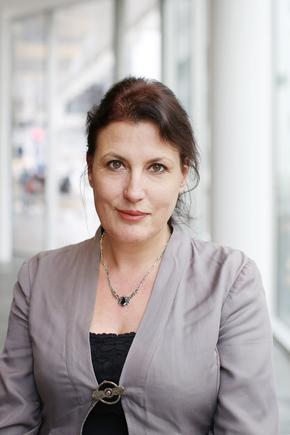#MoneyTalks17: The lowdown on salaries, generational differences and diversity in Auckland ICT
- 27 July, 2017 10:00
The inaugural Auckland IT Salaries Report by RWA Technology People confirms the lucrative pay of nine areas of work, while providing more details on a major gap, in the sector.
Indeed, the report affirms the under-representation of women in ICT, but notes population isn’t the only area where they are disadvantaged.
“In every role group except business (which are primarily business analysts) women received a lower median base salary when compared with their male counterparts,” says Denis Parkinson, a director of RWA Technology People.
At the #MoneyTalks17 forum in Auckland to launch the report, Parkinson and a panel of ICT leaders discuss this and other key findings of the report.

“It is really disappointing,” says Liz Gosling, CIO at AUT University, on the data on gender imbalance in the sector.
Since 1981, which was when the 80 to 20 split [between men and women] in the sector was established, this has not shifted at all, she says.

She cites the challenges a lot of women face when establishing a career in the male dominated industry.
“Blokes, you are at least half of the problem here,” she tells the audience.

Clearly, whoever set the 9 to 5 workday was not a woman.
“I am sorry, but you have to make your workplaces more female friendly,” says Gosling.
She says women are involved in child care and when they reach a certain age, are also involved in the care of their parents.
“You have to think that how you structure the workplace because clearly, whoever set the 9 to 5 workday was not a woman.”

She says that AUT had provided her this flexibility. She says she sometimes works at 4 am and has to leave at 3 pm to attend her daughter’s netball practice at school.
Gosling also calls for changing how organisations advertise for jobs for IT.
She says a lot of the advertisements demand a bachelor’s degree in computing, or a similar business degree, as a minimum requirement.
“We are selecting people out of the process at that point.”
She says if that were the case when she applied for her first job in IT, she would not be where she is now.
“I have a much more history and social sciences background, but I did not have that qualification when I got my first job,” she says.
She studied computer science when her forward-thinking employer recommended that she do so, with the organisation paying for her university fees.
“Stop long job winded job ads with lots of tech words, please,” says another panelist, Phil Crothers, a senior talent specialist at Xero.
From the audience, management consultant Owen McCall asks how organisations can self-monitor around unconscious bias.
Gosling says organisations can do “blind recruitment”.
Have HR people remove personal information such as gender and names, so the person doing the hiring is looking at the skills and background of the person, she states.
Phil Crothers says training to remove unconscious bias should happen first. “If you don't train people to remove unconscious bias, you are putting a band aid over it, it won't go away.”
Another panelist, Campbell Such, GM of IT at Bidfood, spoke about visiting a school that started a software development programme for children. At least a third of the participants were girls.
“We need to encourage more of these programmes,” he says.
He says one of the cliches in the workplace is people tend to move companies because of managers, and you tend to employ for skill, and fire for attitude.
“We need to flip that around,” says Such. “We need to make sure we have great managers for the really good staff that we want to keep.
"We also need to encourage staff to make sure they stay and progress, and be part of a great team.
“Have the interest of the staff at heart, when you do that it is amazing what they can do.”
“Hire for attitude not for skill, absolutely,” Gosling adds in agreement.

You have to have a culture that is focused on outputs.
Vanessa Payne, people and culture manager for the APAC region at Vend, says the software company measures employee engagement four times a year.
In the latest engagement survey, she says compensation came up as a driver, which was the first time it has happened in her three years in the company.
The survey asks people to give a statement on whether their compensation is fair, or whether they are fairly paid in relation to the market.
"We used to really look for enthusiastic generalists for the roles we were recruiting for and now we look for experienced specialists, as our business has changed and is growing,” she says. With those two things combined, there is no surprise compensation has risen as a driver for the work.
“The net message there is people feel they need to be paid fairly in order to feel engaged, which we can all agree. That is certainly important to our workforce as well.
“It is really important for any people or culture office or HR team and the wider business functions to look at market data,” she says.
In their case, they look at all market data for salaries, compare themselves to software as a service companies of similar size and revenue.
“It is important to get the right data when you make these types of decisions,” she states.
She says a non-negotiable benefit for most of their staff and those they are recruiting is flexible working.
“I can’t imagine going to a company where you have to work 9 to 5 and somebody is watching what time you enter the building and what time you leave. It seems so old school and ridiculous to me,” she says. “You have to have a culture that is focused on outputs, if you want your business to succeed.
“If you are focused on inputs and how much time people are spending at their desks, you are probably gonna get a bunch of people who check Facebook for the last hour of the day.”
She says the number one factor they have seen for the past year around driving employee engagement and overall retention, is growth and development.
“People want to feel like to feel they are supported in their career choices, they are able to make career choices and decide where they want to go and that there are genuine resources in place to help them.”
She says Vend has a growth and development budget set aside for each employee [per year]. She says the minimum amount is $1000, though employees can make this amount go far if they are looking at job training, mentoring and outside training as well.

The main skillset I am looking for is the ability to learn and grow.
“We have built a framework to enable our managers to have growth and development conversations with their employees, as part of a regular cadence of one on ones,” she says.
She says they also rolled out some other benefits to make the organisation “sticky”. These include a new benefit for new parents. As the average age of their employees has increased, they are now thinking of the next stage in life which for a lot of them are becoming parents, says Payne.
Vend also has a global stock option scheme, which is successful in increasing the average tenure for staff.
Crothers says millennials are the largest part of their workforce now. Xero has 1700 people globally and 900 of them are in New Zealand.
He says a lot of people have interests outside Xero and the company gives them the flexibility and time to spend on these. These may be involvement in community programmes, or training to become a tri-athlete.
Crothers says this approach is important particularly for millennials, who not only want to do a good job but want to be proud of where they work.
“Back them up in what they want to do, give them opportunities to grow, and not just put [these] on a piece of paper.”
He says the organisation gets value from this as the staff will not leave and they do not have to pay thousands of dollars to train someone else for the job.
Crothers recruits people from overseas and when asked what skills he looks for in candidates, he explains:
“We scale a level that no other companies do in New Zealand. We just can’t say, 'go hire someone from this spec to do the job'."
Xero is not “tools agnostic”, so the ability to learn and grow is the main skillset he is looking for.
 Credit: Dreamstime
Credit: DreamstimeYou have to be resilient to change, be open to change, be open to feedback
‘Be resilient to change, be a lifelong learner’
The panelists share tips to futureproof a career in the era of change and automation.
“Lifelong learning and the right attitude,” says Campbell Such of Bidfood.
“Know that what you are doing today is not going to be the thing that can get you to something,” he states. It is more like a “squiggly line”, he adds, as one takes on different roles along the way. “And you [then] find where you want to go isn’t here, it is over there.”
Vanessa Payne of Vend says having the right attitude, more specifically resilience, is critical.
She cites Sheryl Sandberg’s book Option B, where the Facebook COO and co-author Adam Grant wrote that resilience is like a muscle, it can be built-up.

We all need to understand the people we are working with and working for us, understand their motivations, drivers, aspirations and work with those
“You have to be resilient to change, be open to change, be open to feedback,” says Payne. “You might be doing something you might not have thought you might be doing.”
Liz Gosling cites the importance of nurturing relationships. “Build networks, be nice to everybody.”
You never know when you get to meet those people again, she says. “In five years time, they may be employing you.”
Phil Crothers of Xero agrees with Gosling. “Treat people the way you want to be treated.”
Denis Parkinson says lifelong learning is important, but also, recognise that “business is about people.”
“We all need to understand the people we are working with and working for us, understand their motivations, drivers, aspirations and work with those.”
The RWA report tackles this further. In a fast-moving industry like technology, the search for talent becomes even more critical to business success, it states.
“We can no longer focus just on the right skills or experience. We must also learn to spot potential – the ability to adapt and grow into increasingly complex roles and environments, an essential skill in the technology sector.
“There are plenty of great developers or managers with strong technical skills, but are they motivated? Are they curious? This insight, engagement and determination is what sets them apart, and enables them to be more than just a job title."

IDG, publisher of CIO New Zealand and Computerworld New Zealand, is a media partner of RWA Technology People in the inaugural Auckland IT Salaries Report 2017.
Send news tips and comments to divina_paredes@idg.co.nz
Follow Divina Paredes on Twitter: @divinap
Follow CIO New Zealand on Twitter:@cio_nz
Sign up for CIO newsletters for regular updates on CIO news, views and events.


